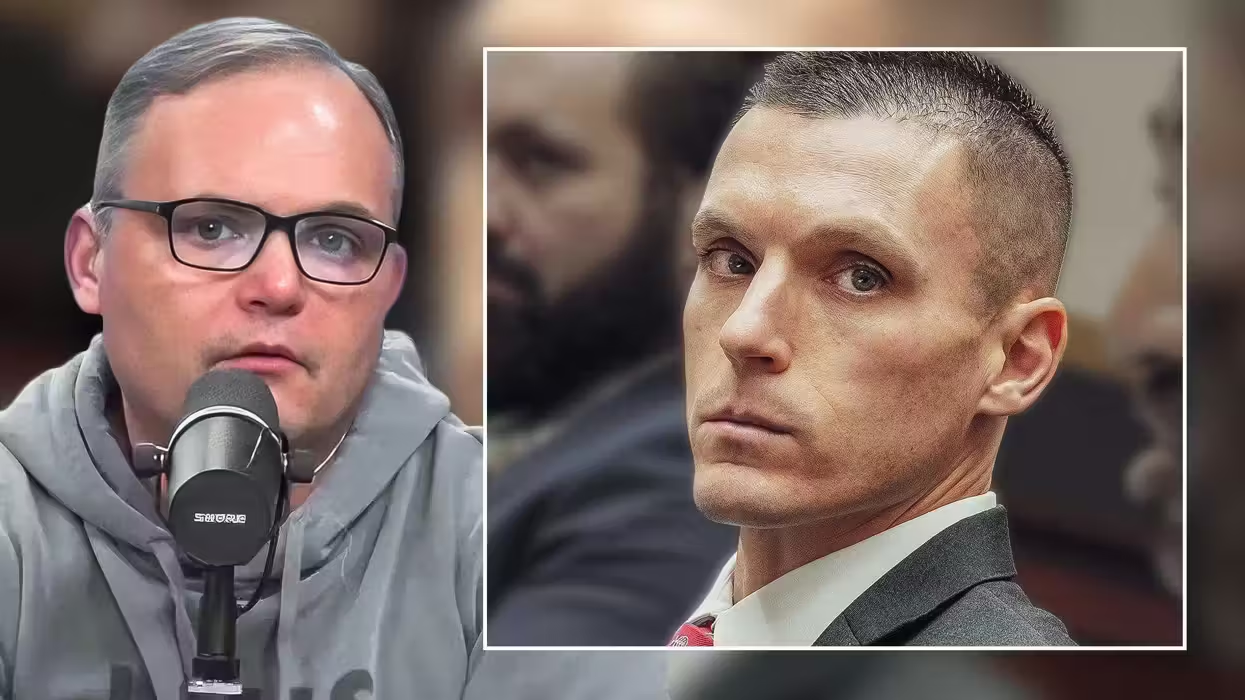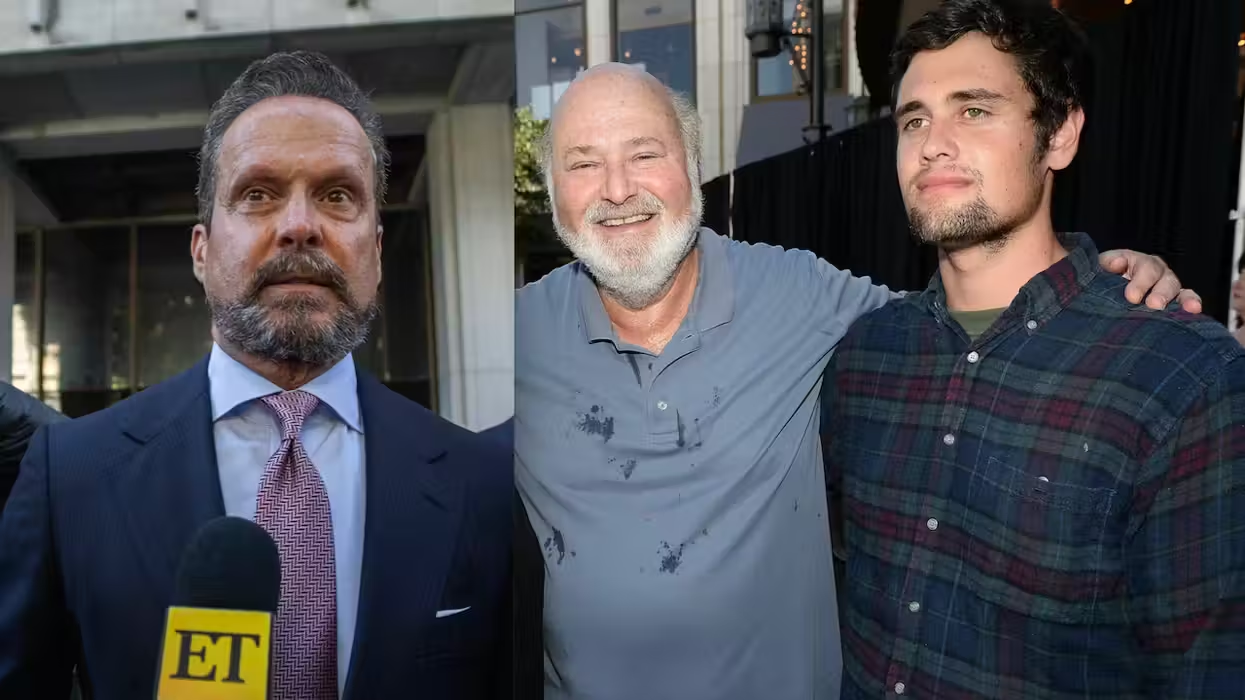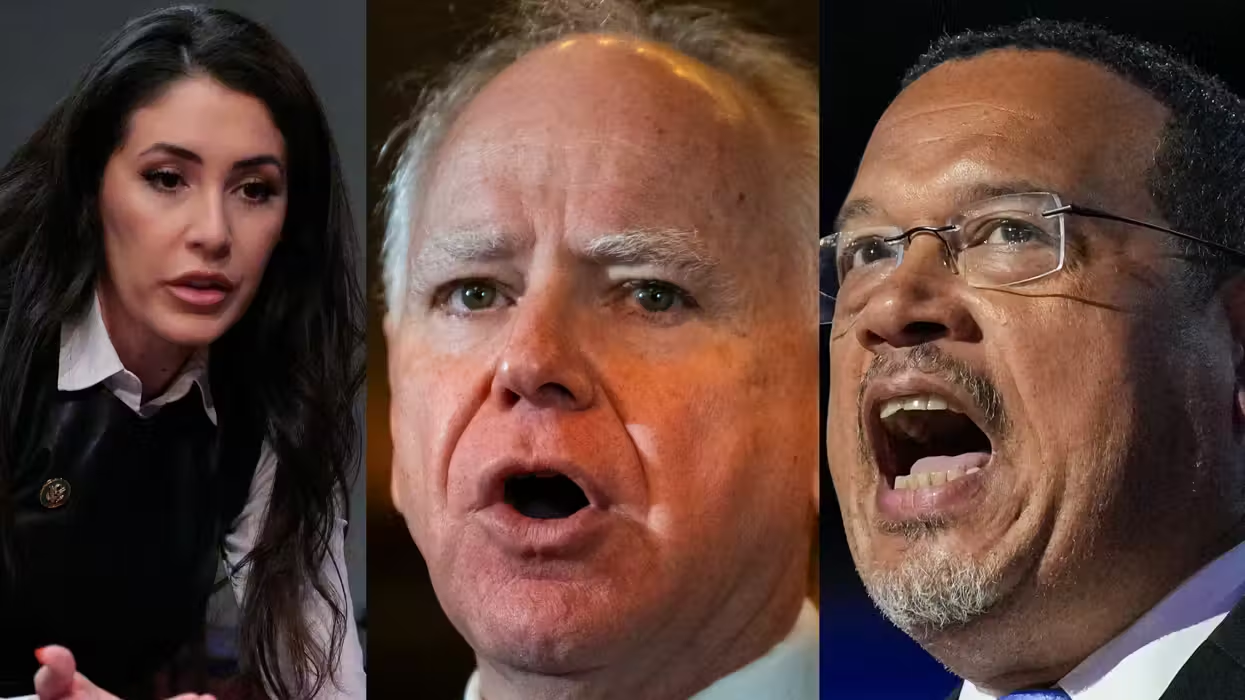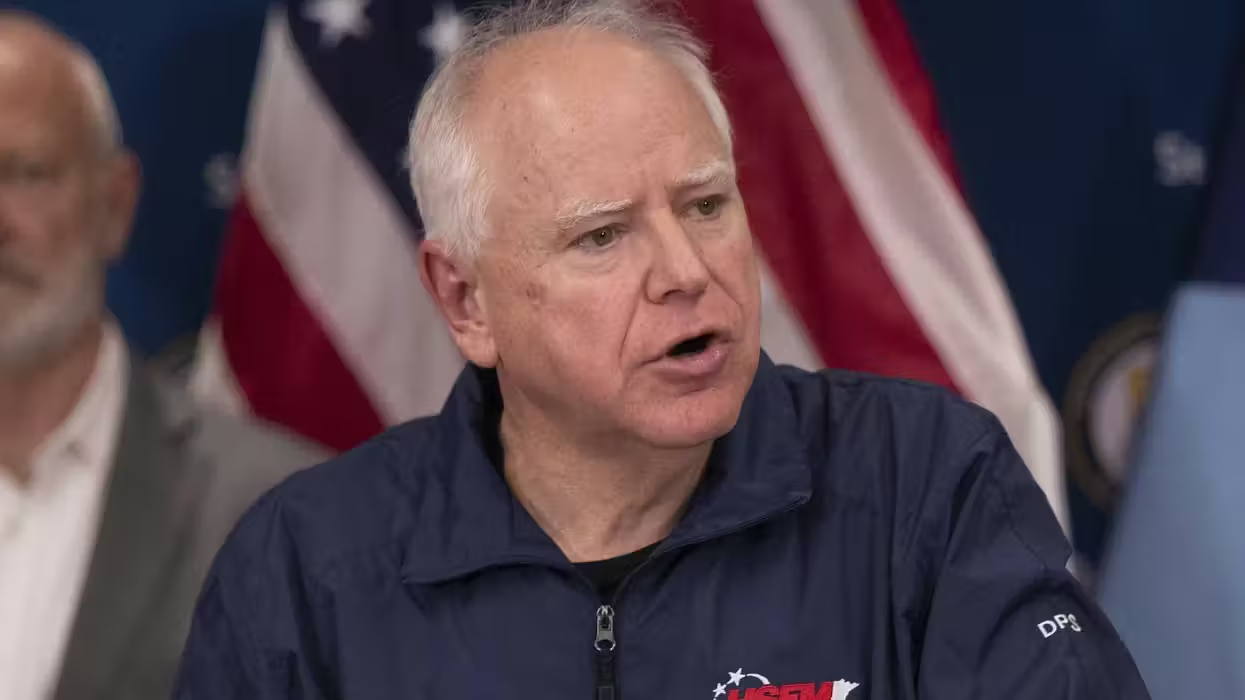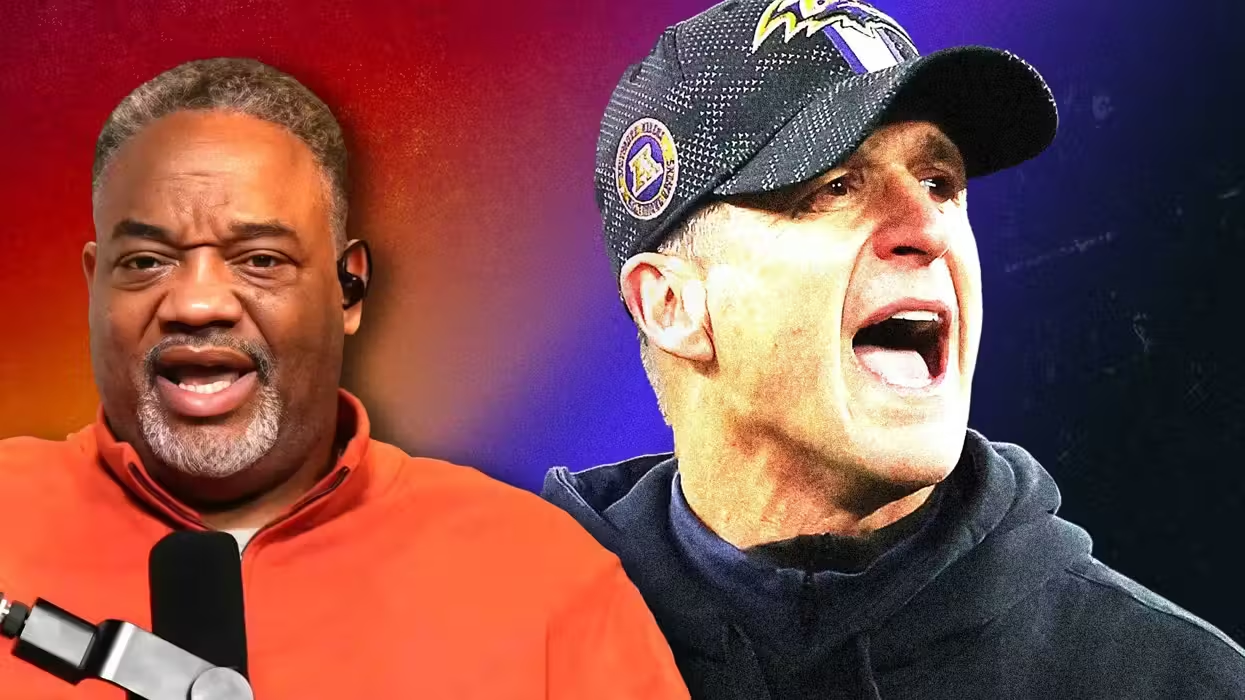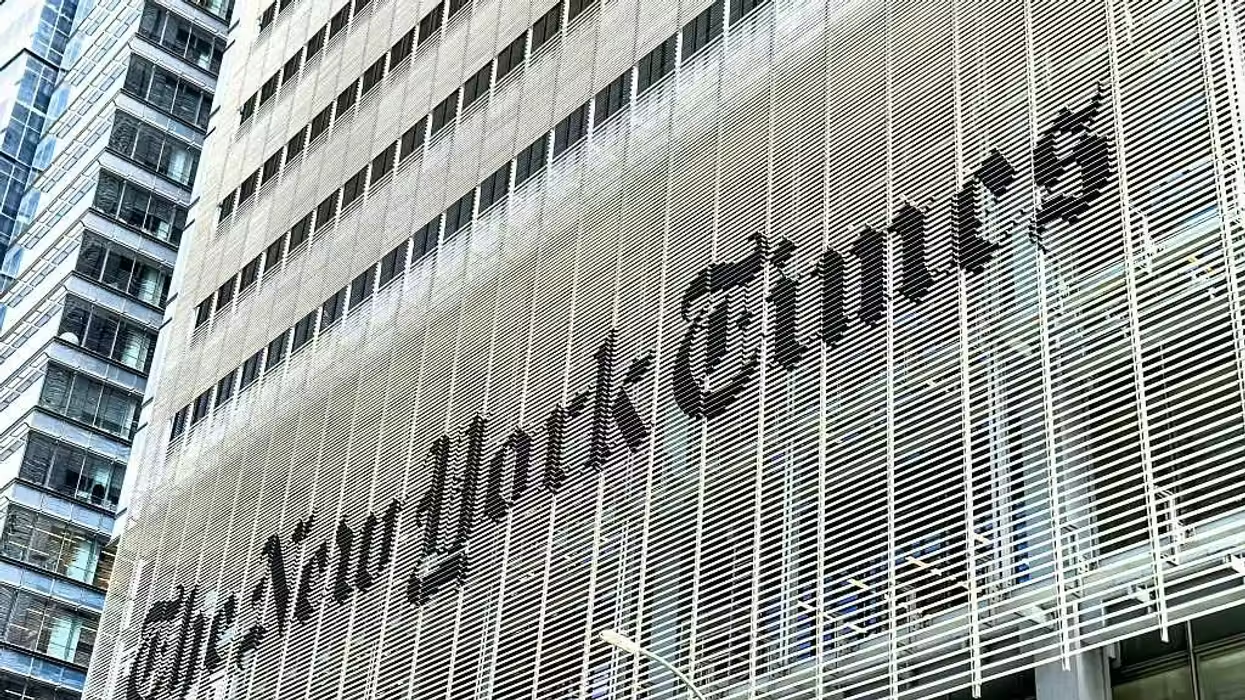 Then-United States Attorney for Arizona Dennis Burke speaks behind a cache of seized weapons Tuesday, Jan 25, 2011 in Phoenix. (Photo: AP/Matt York)
Then-United States Attorney for Arizona Dennis Burke speaks behind a cache of seized weapons Tuesday, Jan 25, 2011 in Phoenix. (Photo: AP/Matt York)
A new report from the Justice Department's inspector general (IG) says the U.S. Attorney in Arizona violated department policy by providing Fox News with an internal memo -- a move the IG report says "was likely motivated by a desire to undermine" a federal agent who helped reveal the botched arms-trafficking program called Operation Fast and Furious.
"We ... concluded that Burke’s disclosure of the Dodson memorandum to Levine was likely motivated by a desire to undermine Dodson’s public criticisms of Operation Fast and Furious," the report says, a reference to then-U.S. Attorney Dennis Burke and whistleblower John Dodson. "Although Burke denied to congressional investigators that he had any retaliatory motive for his actions, we found substantial evidence to the contrary."
The memo focuses on a plan detailed by agent Dodson that proposed using similar tactics to those maligned in Fast and Furious. In emails excerpted in the report, Burke was upset over Dodson's "hypocrisy."
The IG report is clear that it believes the 2011 incident involving Burke was in retaliation against Dodson, who had just two weeks earlier given testimony to a House committee that raised serious concerns about the operation.
 In this March 4, 2011 photo, then-U.S. Attorney, District of Arizona, Dennis K. Burke speaks during a news conference in Phoenix. (Photo: AP/Matt York)
In this March 4, 2011 photo, then-U.S. Attorney, District of Arizona, Dennis K. Burke speaks during a news conference in Phoenix. (Photo: AP/Matt York)
The IG report calls this "unauthorized disclosure" of the ATF memorandum drafted by Dodson a violation of the department's rules regarding media relations. It calls Burke's actions "wholly unbefitting a U.S. Attorney."
Burke admitted to disclosing the document and resigned in 2011, calling it "the right time to move on to pursue other aspects of my career and my life and allow the office to move ahead."
"The OIG found that Burke’s misconduct was particularly egregious because of his apparent effort to undermine the credibility of Dodson’s significant public disclosures about the failures in Operation Fast and Furious," the report summary stated.
 This Friday, June 24, 2011 picture shows ATF agent-turned-whistleblower John Dodson in Phoenix, who warned his superiors of the "Fast and Furious" investigation: "I think it's going to end bad. Are you prepared to go to an agent's funeral?" The ATF is under fire over the Phoenix-based gun-trafficking investigation in which agents allowed hundreds of guns into the hands of straw purchasers in hopes of making a bigger case. Two of those weapons were found in December at the fatal shooting of U.S. Border Patrol agent Brian Terry, igniting a scandal that has resulted in a congressional investigation and review by the Justice Department's Office of Inspector General. (Photo: AP/Matt York)
This Friday, June 24, 2011 picture shows ATF agent-turned-whistleblower John Dodson in Phoenix, who warned his superiors of the "Fast and Furious" investigation: "I think it's going to end bad. Are you prepared to go to an agent's funeral?" The ATF is under fire over the Phoenix-based gun-trafficking investigation in which agents allowed hundreds of guns into the hands of straw purchasers in hopes of making a bigger case. Two of those weapons were found in December at the fatal shooting of U.S. Border Patrol agent Brian Terry, igniting a scandal that has resulted in a congressional investigation and review by the Justice Department's Office of Inspector General. (Photo: AP/Matt York)
The report also pointed out that just days before disclosing the memorandum to Fox News, Burke had taken responsibility for unauthorized disclosure of information to the New York Times, for which the Deputy Attorney General had put him on notice.
The report says that it's referring its findings to the Office of Professional Responsibility "for a determination of whether Burke’s conduct violated the Rules of Professional Conduct for the state bars in which Burke is a member."
Here's the full report (the IG's analysis begins on page 16, but the first 15 pages are still quite interesting):
IG report on ATF whistleblower memo leak
The Associated Press contributed to this report.
--
Related:

 Then-United States Attorney for Arizona Dennis Burke speaks behind a cache of seized weapons Tuesday, Jan 25, 2011 in Phoenix. (Photo: AP/Matt York)
Then-United States Attorney for Arizona Dennis Burke speaks behind a cache of seized weapons Tuesday, Jan 25, 2011 in Phoenix. (Photo: AP/Matt York)

